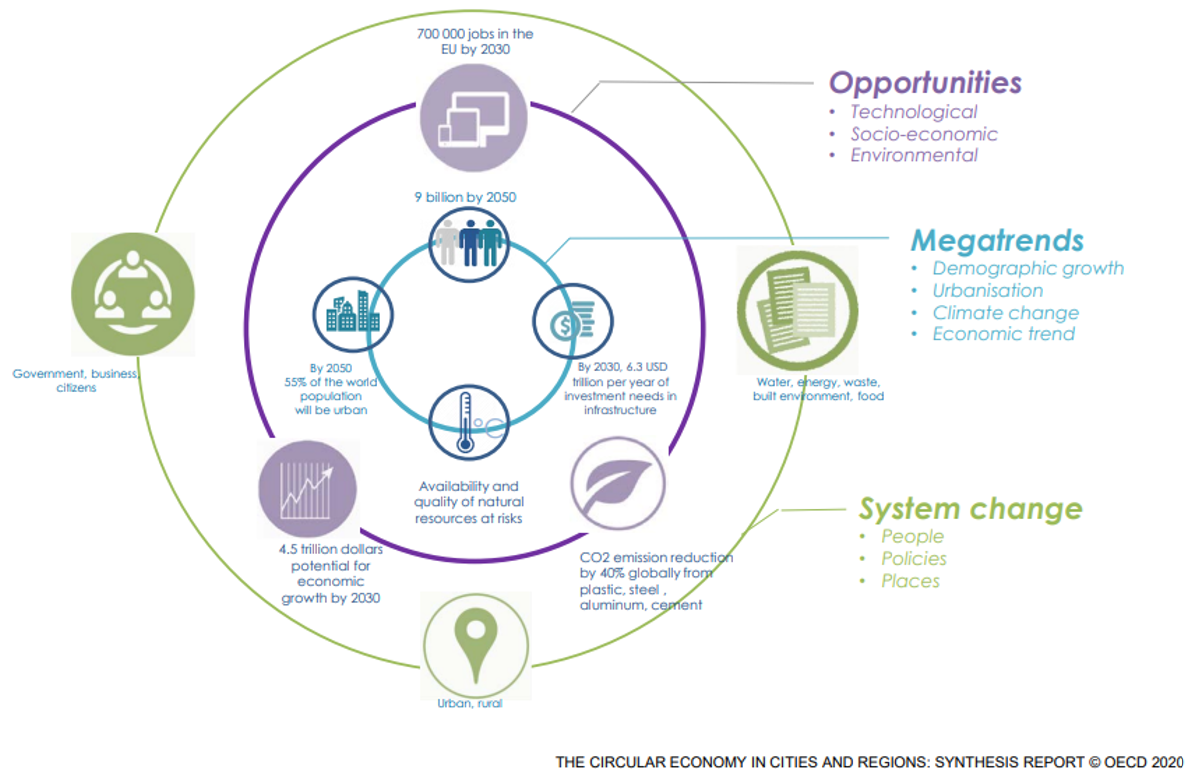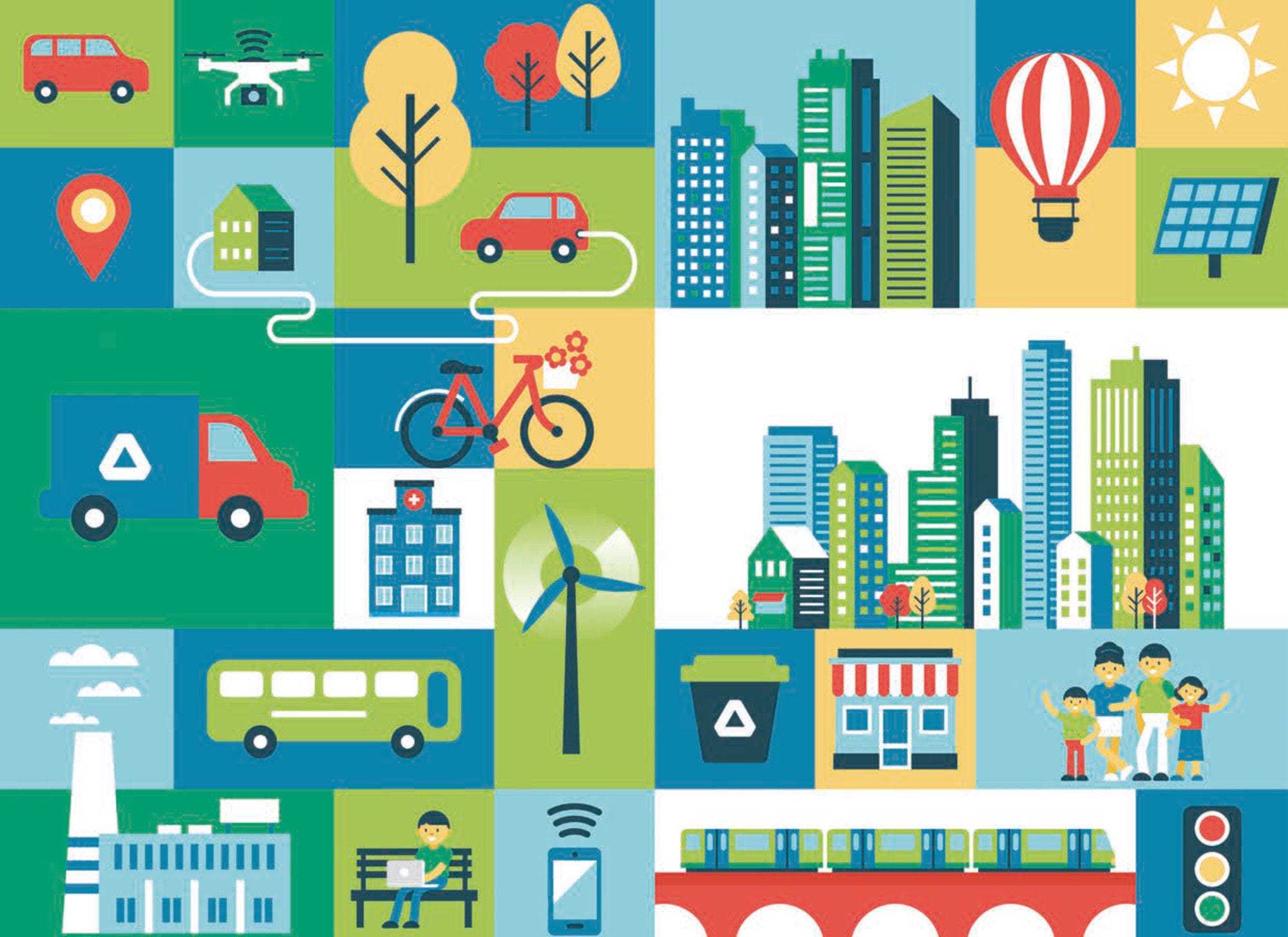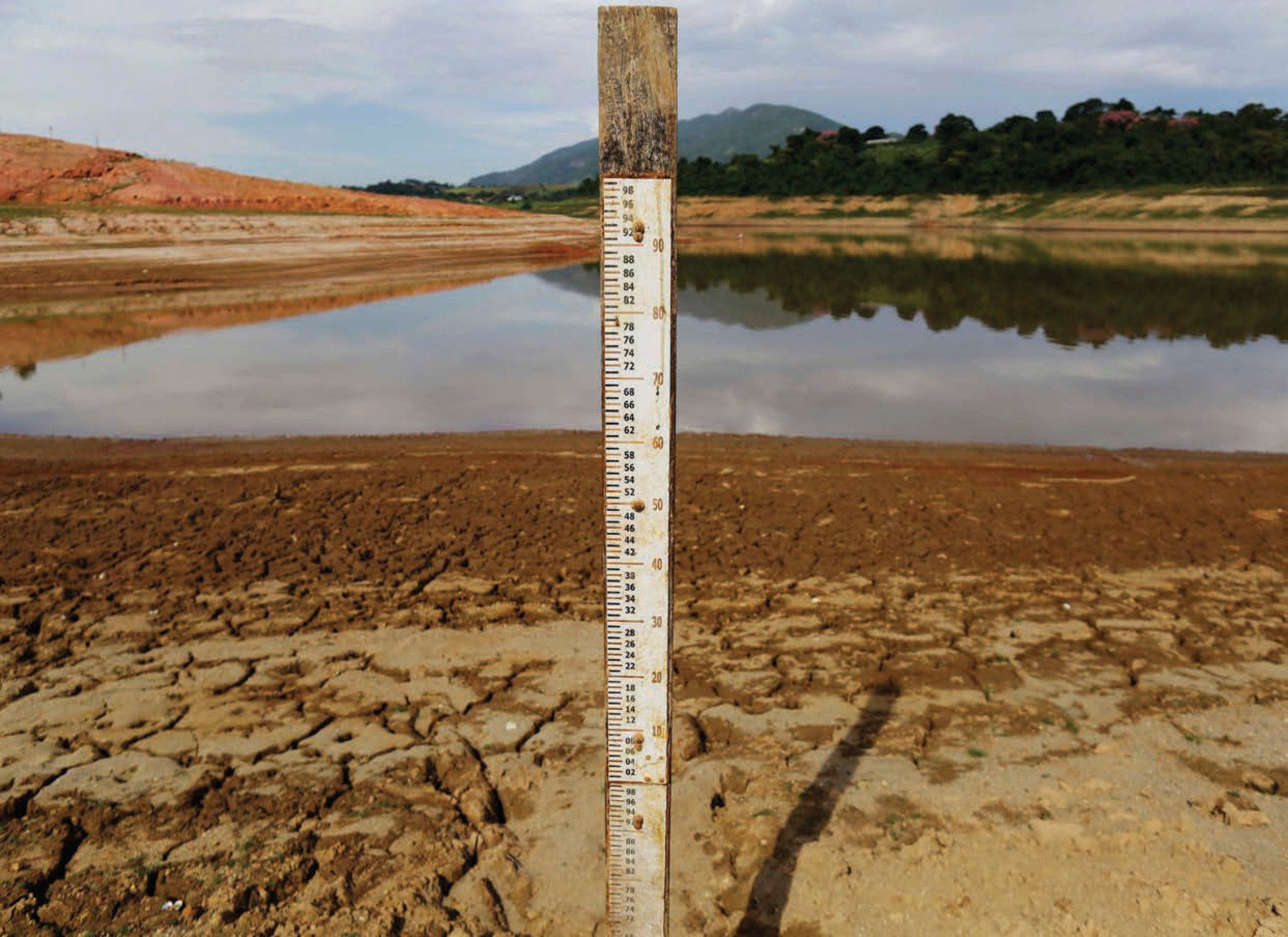To make our economies climate neutral and keep the use of resources within planetary boundaries, we need cut down on energy use, move to renewable energy and make economies circular. This requires major transformations at regional and local levels. The OECD and the European Commission’s Directorate-General for Regional and Urban Policy, organised a workshop series “Managing Environmental and Energy Transitions for Regions and Cities” in 2019 to discuss the challenges and opportunities. Five high-level expert workshops discuss the role of regions and cities. The results are available in a publication and a series of working papers.
Managing Environmental and Energy Transitions for Regions and Cities
Summarising the insights of a high-level expert workshop series, a publication and a series of working papers discuss how policymakers can facilitate and enable the transformations for a climate neutral and environmentally sustainable economies at regional and local levels.
About the project
Our mission
The transition to a climate-neutral economy should: a) reflect the diversity of conditions between and within countries; and b) deliver on citizens’ well-being. Regions and cities are well placed to develop effective solutions together with the private sector. Support from the national level is also needed to help them anticipate and manage this transition in a targeted and tailored manner.
Cities are responsible for a major part of economic activities, 70% of greenhouse gas emissions and two-thirds of global energy consumption. Cities are well positioned for climate action through local strategies that help reach national objectives. This needs different and more investment, but also will lead to positive local impacts such as more business opportunities and increased well-being.
The Circular economy is a new socio-economic paradigm. In a circular economy, resources are used in a more sparing, sustainable and efficient way. Technological as well as social innovation is needed. It requires rethinking patterns of production and consumption, in addition to optimisation of existing systems. Moreover, the circular economy emphasises the role of changing consumption practices, behavioural aspects and grassroots initiatives.

Compared to urban economies, rural economies struggle more with responding to the transitions because of their car dependency and less diverse economy. Even so, rural areas are crucial in fighting climate change through carbon sinks and ecosystem services. Unfortunately, these benefits often aren't turned into money, which puts rural communities in a tough spot. It forces them to balance between protecting the environment and promoting development.
Regions and cities are already big players in spending and for environmental initiatives. However, the current spending isn't oriented enough to what we need for the environmental and energy transitions. This necessitates more investment from government and businesses. But it's not just about money; we also need local solutions for behavioural transformations. New governance approaches can make it happen, empowering stakeholders.
How it works
For each of the workshops, experts prepared two background papers. The first one summarises the latest academic ideas, while the second one introduces policy approaches and examples. Based on these papers and workshop discussion, an OECD publication ‘Managing Environmental and Energy Transitions for Regions and Cities’ offers guidance on getting regions and cities ready for a climate-neutral and circular economy by 2050.
Related publications
Partners & Donors
Directorate-General for Regional and Urban Policy of the European Commission
The financial contributions and support from the Directorate-General for Regional and Urban Policy (DG REGIO) of the European Commission are gratefully acknowledged.






